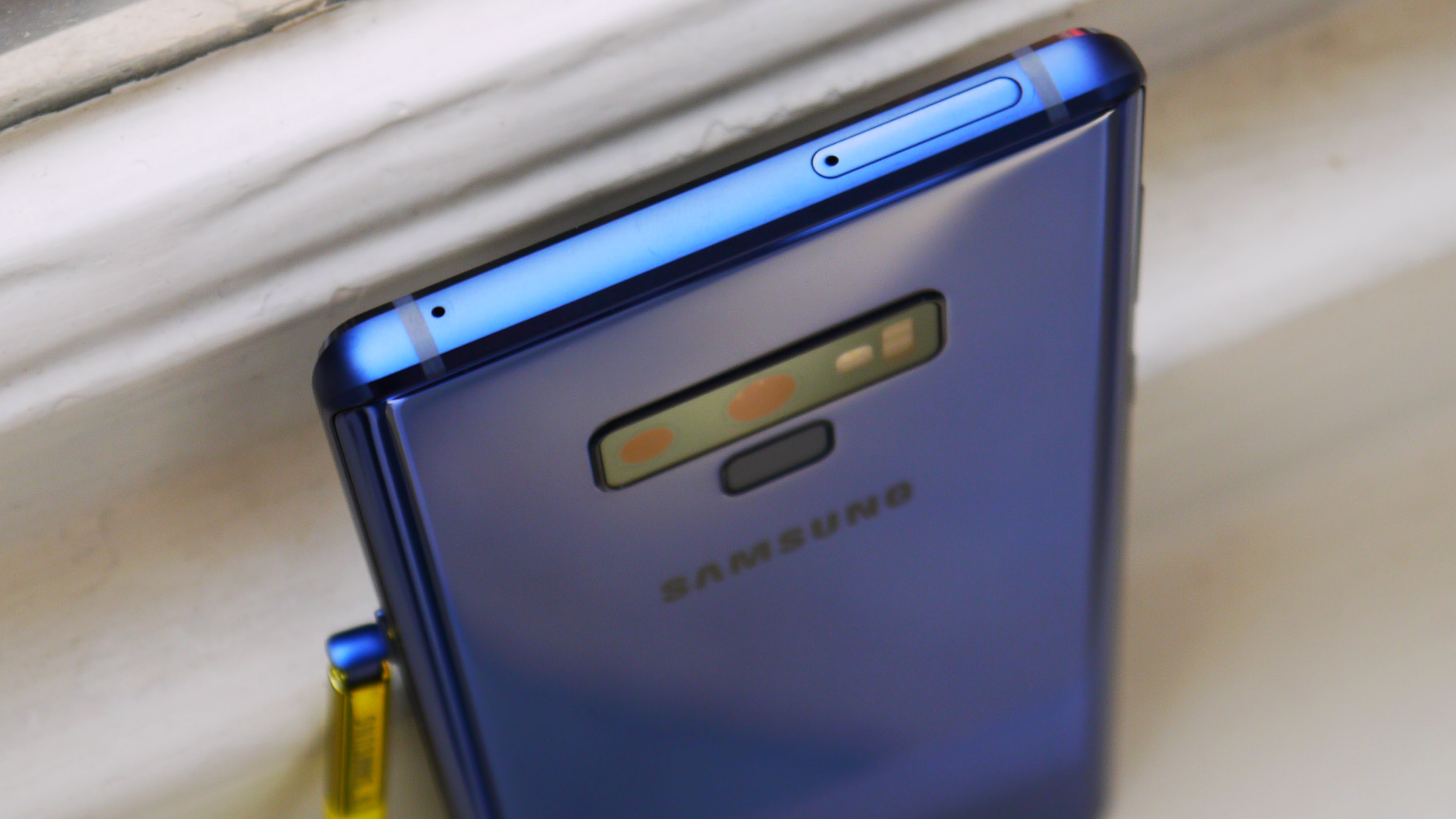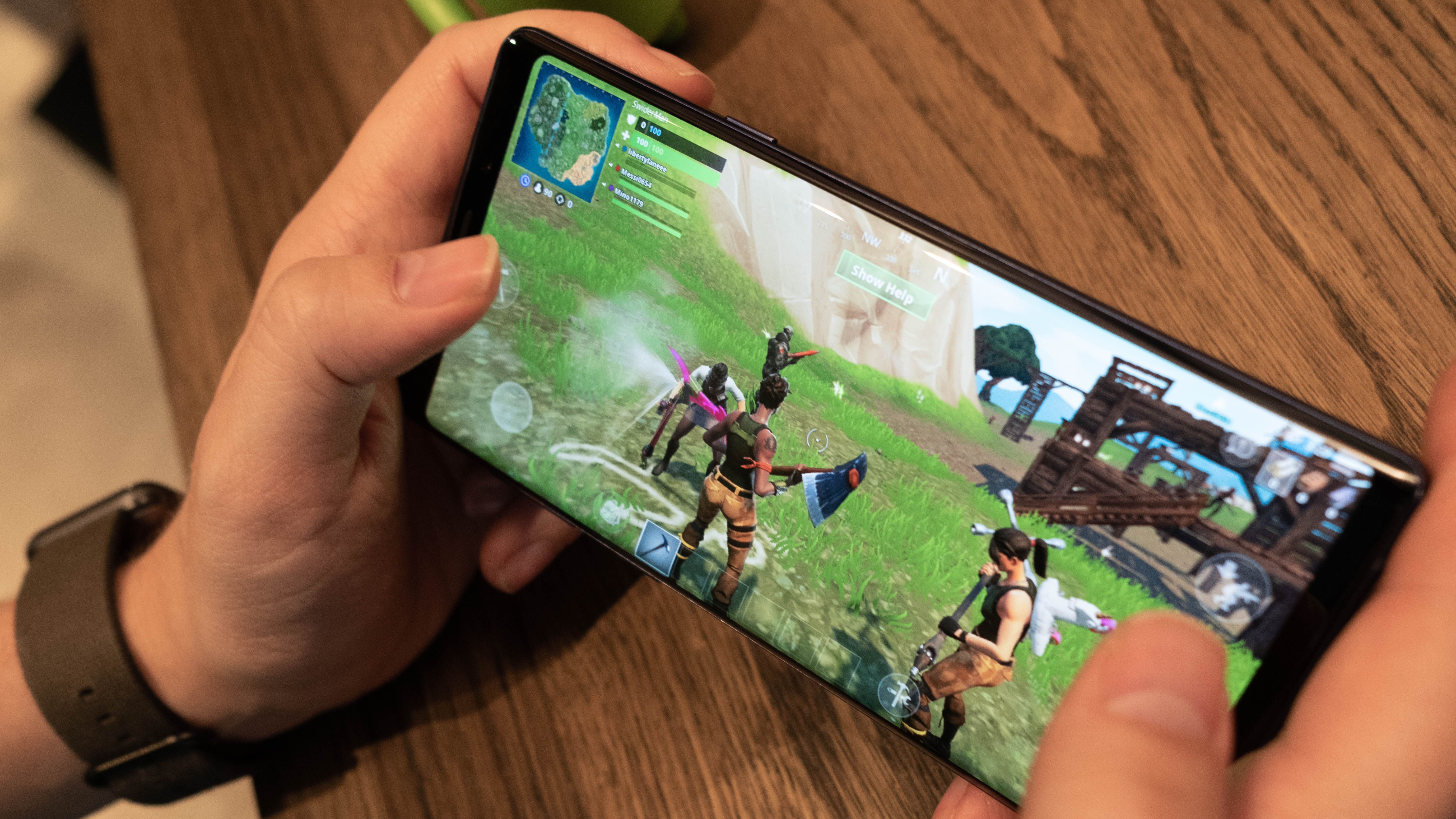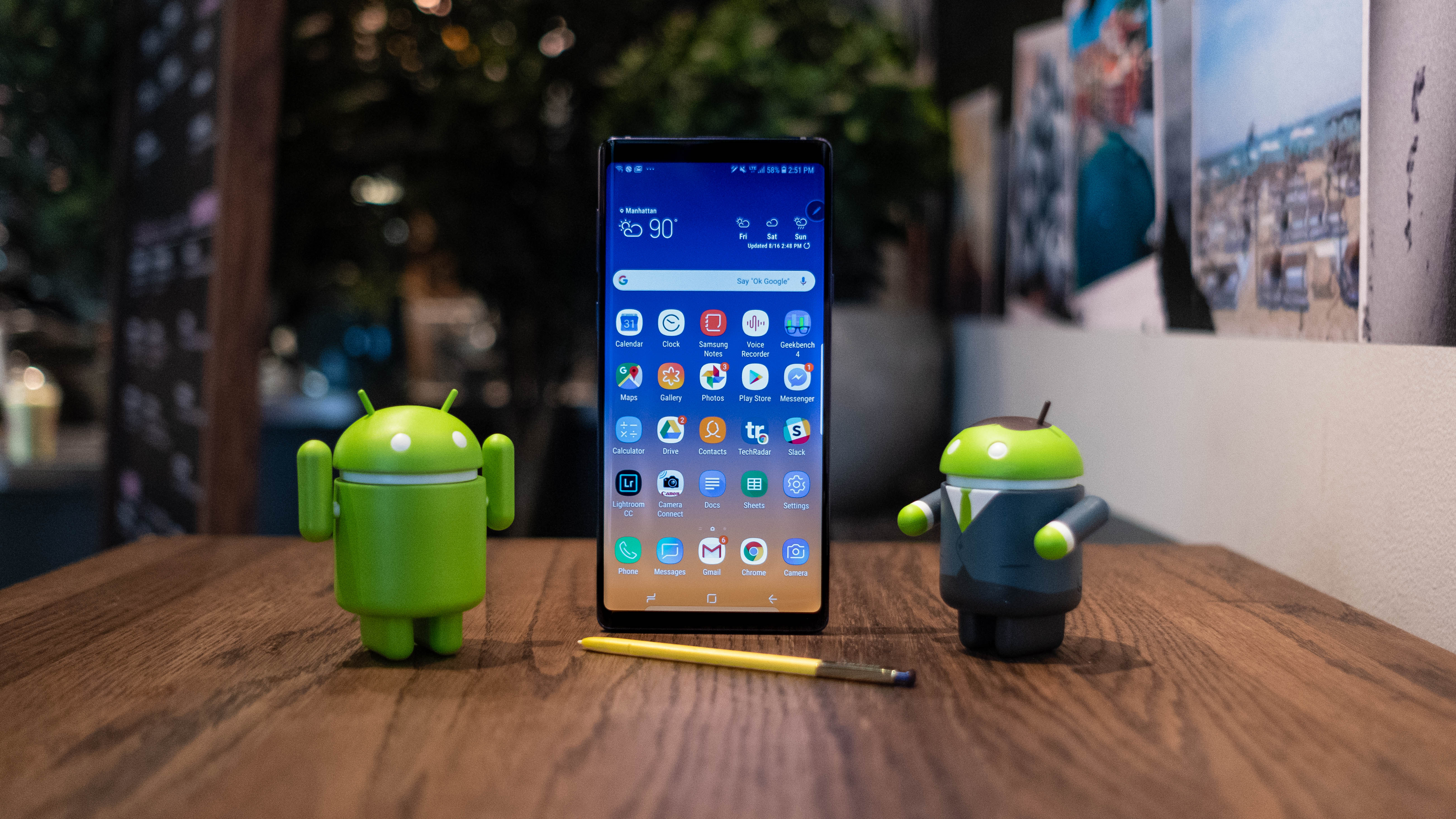Why you can trust TechRadar
Your first 1TB-ready smartphone
- 512GB of internal storage with 8GB of RAM
- 128GB of internal storage with 6GB of RAM
- Additional 512GB microSD card can up storage to 1TB
- Laptop-sized storage ideal if you're suspicious of 'the cloud'
It’s no surprise that, among the top manufacturers, Samsung is the first to produce a 1TB-ready smartphone, a capacity that rivals the best laptops people buy today. It's Samsung that makes both the internal 512GB flash drive for phones and a variety of 512GB microSD memory cards.

The Note 9 is billed as the phone that will never run out of physical storage space. Uninstalling games and deleting movies you’ve downloaded isn’t something you’ll need to worry about here – take all the photos you want at full resolution, and all the 4K video you want, no compromise required.
8GB of RAM is going to work best for Samsung’s Dex desktop virtualization mode if you're planning to make use of second-screen workflows. Turning an HDMI screen into a PC-like experience driven by your Note 9 is taxing. But we found Dex to be wholly better on the Note 9 than on the Note 8. The latter subjected you to using a physical Dex dock accessory; this time all you need is a simple HDMI dongle.
Of course, that 512GB storage and 8GB RAM send the Note 9 price skyrocketing; the entry-level 128GB and 6GB of RAM configuration is ‘cheaper’ by $250. And keep in mind that storage configurations on the box aren't all they seem: at least 19GB of space is gobbled when you boot the phone up for the first time.
It's worth noting that the 128GB Note 9 also supports microSD cards up to 512GB in size, giving you plenty of storage scope with this model as well. (hat tip: Ash E)
At these prices, the questions you have to ask yourself are: Do I really need a 1TB phone? Am I going to also spend money on a 512GB microSD card? And will cloud storage make all of this irrelevant in the future? Anyone who wants to resist saving to 'the cloud' may have a use for these features.

The 4,000mAh battery
- Much larger battery at 4,000mAh
- Galaxy S9 has 3,000mAh and S9 Plus has 3,500mAh
- Fast Charging and Fast Wireless Charging supported
The Note 9 battery capacity has been unshackled, hitting the 4,000mAh ceiling. This is the best Samsung phone you can buy when it comes to battery life.
Samsung is finally comfortable enough to give us a larger battery following the Note 7 recall. It has skimped on the battery capacity ever since, and promises that its eight-point safety check will mean no repeat of the fires we saw two years ago.

Battery life is touted as all-day, but that's for Note power users. After several days of testing we actually saw more than a day of battery life with moderate use. This is good news because while the Note 8 battery life started out as all-day with a bit of conservative use, the battery health naturally depleted over time.
The 4,000mAh capacity gave us more buffer room between nightly charges, and we didn't have to employ Samsung's smart battery-saving tricks to get through the day. Our standard battery test, which involves playing a 90-minute looped HD video – showed the Note 9 battery fell from 100% to 88%, which is 1% better than the S9 Plus. And keep in mind that the Note has a bigger battery, so that 88% is more meaningful here.
While there are two Note 9 storage configurations, the battery size, thankfully, is the same no matter which version you buy. You also get Fast Charging and Fast Wireless Charging capabilities. As much as we appreciate wireless charging, Fast Charging with the included USB-C cable is always faster, with the following rates in our tests.
Recharge rates
- 15 mins: 17%
- 30 mins: 37%
- 45 mins: 52%
- 60 mins: 70%
- 75 mins: 83%
- 90 mins: 90%
- 105 mins: 98%
- 1h 49 mins: 100%
We have to put those numbers into context a bit. It's fast, but it's not the fastest-charging phone among the top flagship handsets. That title belongs to Huawei and OnePlus at the moment. It's about time Samsung upgrades its charging speeds to QuickCharge 4.0.
Also, if those rates seem slow, remember the Note 9 has a bigger battery than most mainstream phones (excluding phones in China that never come west, and battery-focused variants, like 5,000mAh phones from Asus and others). It charges plenty fast, even if Samsung no longer has the fastest charging tech out there.
Current page: Massive storage and battery
Prev Page Introduction and Bluetooth S Pen Next Page Design, display and performance
